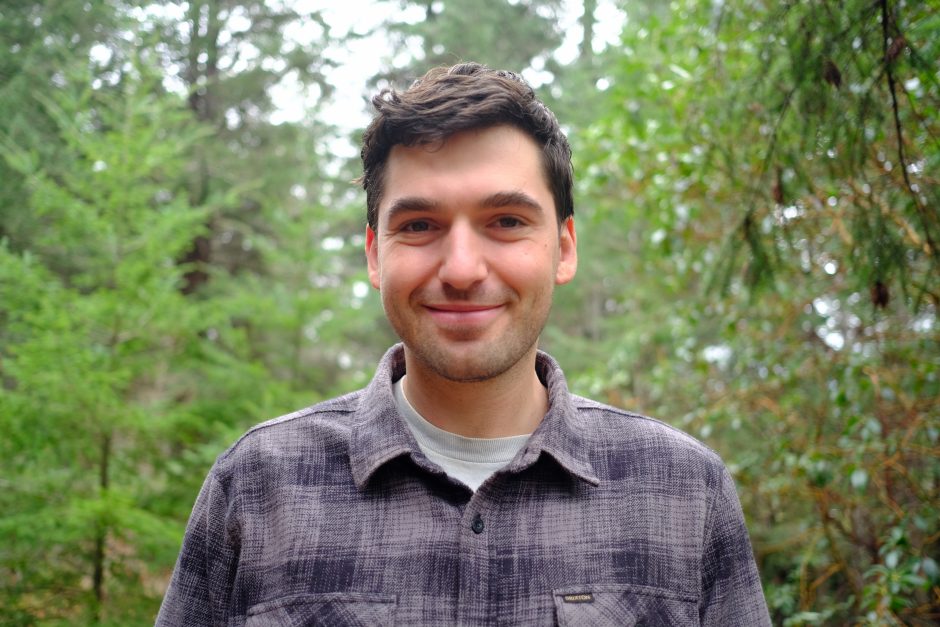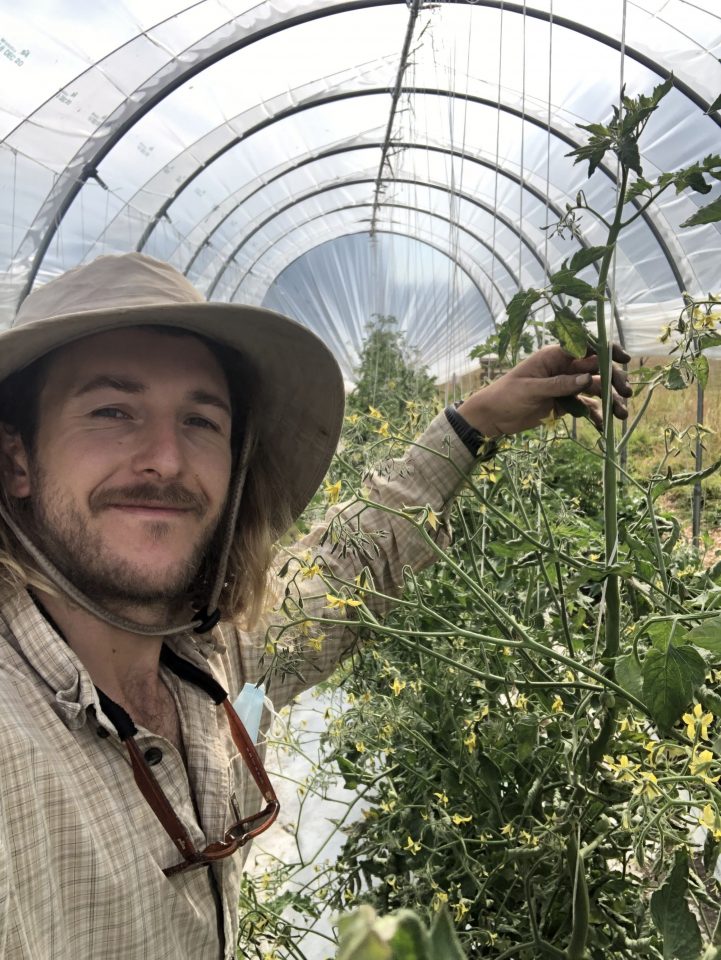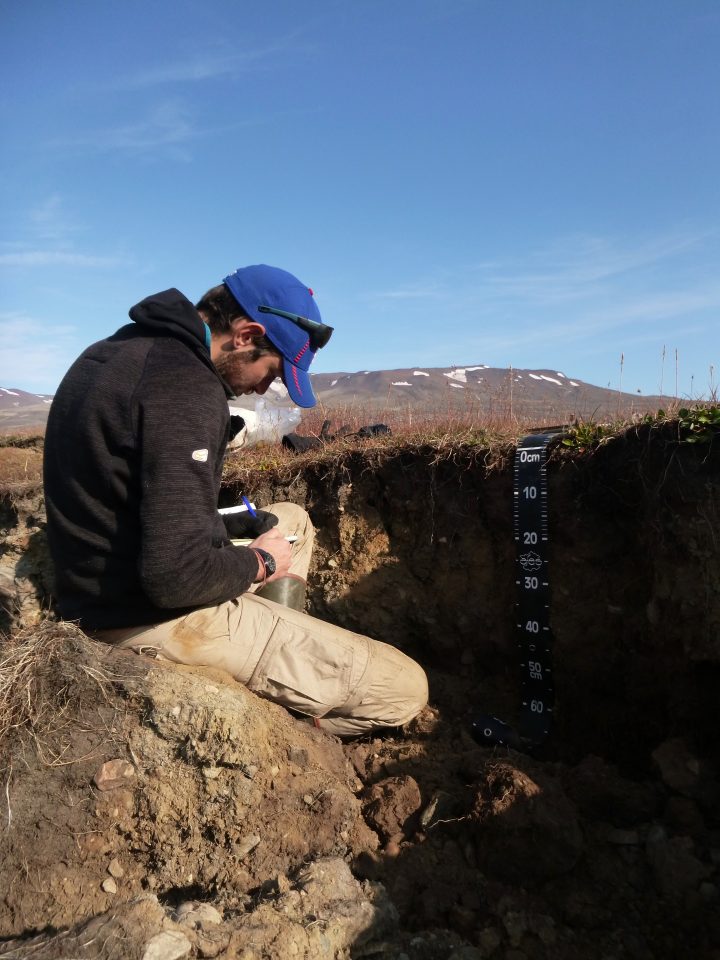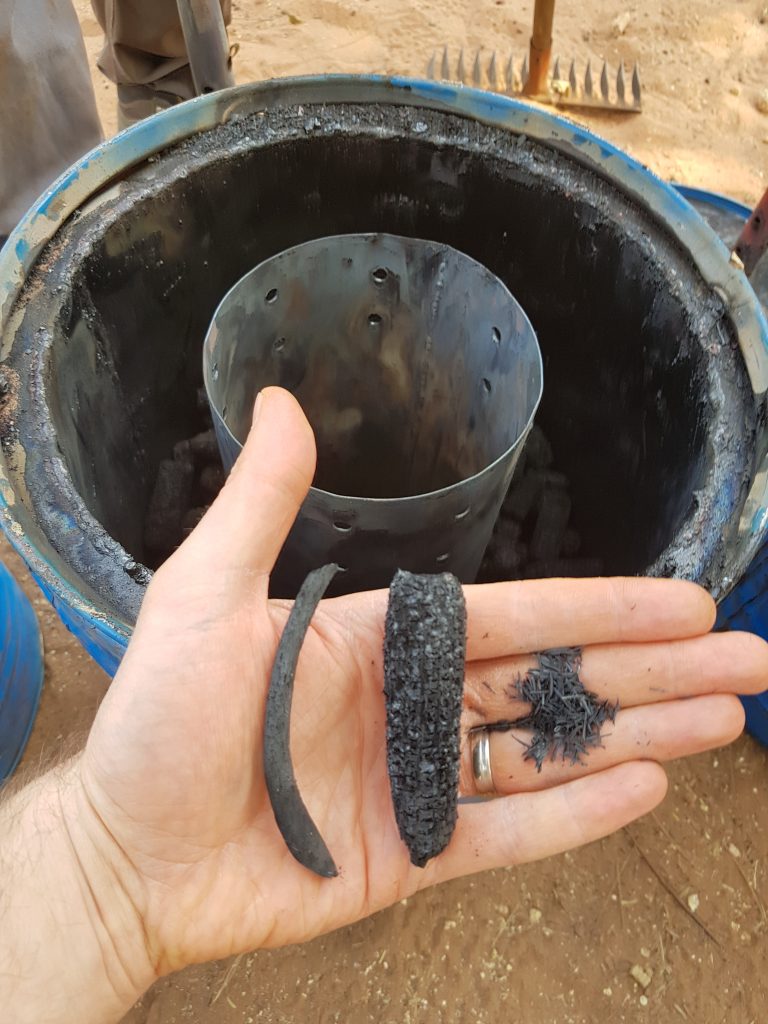
Dr. Jean-Thomas (JT) Cornelis, SoilRes3 PI, is pedologist and biogeochemist, Assistant Professor in Soil Science at the Faculty of Land and Food Systems, University of British Columbia. JT comes from the University of Liège (Belgium), where he was appointed as an Assistant Professor in Soil Science. He received a PhD from the Earth and Life Institute, Université catholique de Louvain (Belgium) in 2010. His research investigates soil processes controlling biogeochemical cycles of nutrients and how soil-plant feedback interactions respond to environmental changes. His process-based approach focuses on the soil system, which is by nature multi-scale and interdisciplinary. JT takes as an advantage the complexity and diversity of soil processes to teach students the notion of critical thinking and complex thought. Daddy of two little boys, outdoor enthusiast, big fan of surrealism, he loves to brainstorm new ideas.
Postdoctoral Fellowships

Dr. Philippe Roux (FNRS fellowship, ULiège-Belgium), SENSi project (Sensitivity to climate change of soil processes controlling Si cycle). His research interest is focused on the mechanisms controlling the biogeochemical cycling of nutrients, with an emphasis on soil-plant relationships. After a PhD on the cycling of boron, an essential micronutrient, in a forest ecosystem, I started working on the sensitivity of the silicon cycle to changing climatic conditions. My research projects include the use of high-end tools and analytical techniques such as stable isotope geochemistry (boron), Vertical Scanning Interferometry (VSi) and Ecotron chambers in order to finely characterize the processes affecting the functioning and evolution of our ecosystems.

Dr. David Lefebvre (Mitacs fellowship) studies the carbon capture potential of using pine-beetle affected wood as biochar feedstock. Thanks to his Mitacs Elevate Postdoctoral Fellowhsip, David aims to combine soil and biomass carbon modeling with a life cycle assessment approach of biochar production to assess the efficacy of the practice throughout British Columbia. He will be collaborating with Brightspot Climate, located in Vancouver. David graduated from the ISIa (Belgium) with a master’s degree in tropical agronomy, followed by two years in Peru with missions in Burkina Faso as biochar specialist. David obtained his PhD in 2021 from Cranfield University (United Kingdom) by exposing the limits and caveats of context-specific greenhouse gas removal technologies through the use of the life cycle assessments methodology.
PhD candidates

Drissa Cissé (ULiège-Belgium, UNB-Burkina Faso), is involved in the BIOPROTECHSOL project (biochar as a residue recycler to cycle nutrients in soils in Burkina Faso, ARES-Belgium funded) studying the effects of co-composted biochar on soil properties and agronomic efficiency in cotton-maize crop rotation cropped on highly weathered soils (Lixisol)

Fatimata Saba (ULiège-Belgium, UNB-Burkina Faso), is involved in the BIOPROTECHSOL (biochar as a residue recycler to cycle nutrients in soils in Burkina Faso, ARES-Belgium funded). She studies the biochar ability to be used as a slow release fertilizer after being activated with fertilizer and urea. The objective is to test the amendment of slow release fertilizer made from biochar on agronomic efficiency in cotton-maize rotation crops and in association with the zaï technique and sorgho cropping.

Victor Burgeon (ULiège-Belgium), CHAR (Century-old CHARcoal kiln sites as an experimental site for assessing long-term biochar effects on agronomical and environmental performance of agricultural soils, ARC-ULiège funded). His research focus on the effect of century-old charcoal on soil chemistry and nutrient cycling in soil-plant systems in Wallonia, Belgium.

Félicie GOUDOT (ULiège-Belgium & ISA-Lille, Yncréa-France, SPW-Belgium. funded) studies the interactive effects of plant growth rhizobacteria and their secondary metabolites (siderophore) on the mobilization of poorly accessible phosphorus forms in soils . The interdisciplinary approach between geochemistry and microbiology applied to a soil-wheat model will contribute to develop new solutions for a sustainable use of inherited phosphorus from soils.

Harini Aiyer is doing a Ph.D. in Soil Science at University of British Colombia, Faculty of Land and Food Systems, collaborating with Agriculture Agri-Food Canada (AAFC -Agassiz, BC; under the co-supervision of Dr. Luke Bainard). She will be studying the impacts of cattle grazing management practices on the soil microbiome and effects on carbon sequestration. Harini graduated with an M.Sc in Agriculture from Dalhousie University (Nova Scotia, Canada). Her M.Sc project (at AAFC-Charlottetown, PEI) focused on the effects of cover crops on associated soil fungal and bacterial communities and the carryover impact on root disease caused by soil-borne Fusarium species. Her research interests are to better understand the impact of anthropogenic activities on soil microbial communities and to aid in the development of sustainable land management strategies with a focus on climate change mitigation.
Nicolas Leroy (ULiège-Belgium), SIVOC
MSc students

Morgan Hamilton is a Master’s student at the SoilRes3 (University of British Columbia) studying the role that biochar can play in strengthening local agricultural landscapes in the face of climate change. Her research will examine the effect of biochar to support drought tolerance and carbon sequestration. Morgan graduated from the University of British Columbia with a BSc in Global Resource Systems and a focus on Food Systems in North America. Morgan is interested in how soils can support climate change mitigation, soil remediation, agroecology, and all things food systems-related. Morgan is grateful to live and study on the traditional and unceded territory of the Musqueam, Stó:lō, Squamish, and Tsleil-Waututh nations.

Oliver Heath is an alumnus of the University of Victoria undergraduate chemistry program who is beginning his master’s of soil science at UBC. He plans to study the role forestry plays in the disturbance of belowground carbon sinks. This project will be done in collaboration with the UBC Faculty of Forestry and the Mother Tree Project. Oliver hopes that his research in SoilRes3 Lab can be used to prevent environmental damage that could lead to an acceleration of climate change. His previous study interests included synthetic and analytical organic chemistry, and sedimentary geoscience.
Undergraduate students
Jack is currently completing his Masters in Land and Water Systems, a program also in the LFS faculty at UBC. For his major project for the program, he will be investigating novel uses of biochar in the lower Fraser Valley through a literature review and feasibility analysis. For the last three years Jack has been farming with an emphasis on market gardening. Jack’s passion for soil and agriculture stemmed from concerns of water resources conservation which eventually lead him to Earth’s sponge, the soil.
He finds optimism in the future from regenerative agriculture as a way to rebuild soil and communities.

Jack brings his enthusiasm for soil to SoilRes3 as a research assistant for the Forest2Farm project.

Hazel Barthel is a fourth-year undergraduate student at the University of British Columbia. She is majoring in Environmental Sciences with a focus on sustainability science and ecology and conservation. Hazel is also working towards a minor in Geographic Information Science and Geographical Computation. She is joining the SoilRes³ lab as a WorkLearn student and is excited to be working on the ForestToFarm project.

Naomi Mengistu-Zelleke is a fifth-year Environmental Science student at the University of British Columbia. She has recently completed the co-op program where she furthered her passion for agriculture. Naomi worked in research programs for weed science and cereal breeding with Agriculture and Agri-Food Canada (AAFC) where she gained experience in both GIS and field work. She is excited to apply her passion and insights to her new position as a WorkLearn student with the SoilRes3 lab!
Lab alumni
Dr. Julien Fouché is now Assistant Professor in the LISAH (Soil-Agrosystem-Hydrosystem interaction Lab) and Institute Agro, Montpellier. He obtained his jointly supervised PhD at CEREGE, Aix Marseille University (France) and Laval University in Quebec (Canada) in March 2014. Then, he worked for Queen’s University (Ontario, Canada) and Gembloux Agro-Bio tech, ULiège (ARC-CHAR project, Belgium) as a postdoc. His research focuses on carbon and nitrogen cycles in both natural ecosystems (permafrost landscapes) and agrosystems (annual and perennial crops) from soils to rivers. As a soil scientist, he aims to better understand the impact of anthropogenic pressures and agricultural practices on the balance between stabilization and release of carbon and nutrient in the critical zone, with a particular interest on organo-mineral interactions and dissolved organic matter dynamics.

Dr. Nakamura Ryosuke, visiting scholar at Gembloux Agro-Bio Tech (ULiège), in 2017-2018. He studies forest ecology, biogeochemistry and soil sciences. He joined the faculty of the Southeast Asian Area studies at Kyoto University in 2021, after earning a PhD in forest sciences at Kyoto University in 2020. His research combines extensive field studies with detailed chemical analyses in a lab to reveal novel aspects of plant-soil interactions. Current research interests include understanding mechanisms of silicon cycling via plants, litter decomposition and plant ecological strategies primarily in tropical and temperate ecosystems underlaid by a variety of rocks (serpentine rock, limestone and others). He loves to work on a variety of topics and look forward to working with anyone interested in new research collaboration.

Dr. Giovanni Mastrolonardo is now a research fellow working at University of Florence. He obtained his jointly supervised PhD at University of Florence (Italy) and University of Paris VI (France) in April 2013. He worked for the Italian National research council and at the University of Bologna. He obtained an international post-doc fellowship founded by the BeIPD Marie Curie COFUND (FP7) programme at Gembloux Agro-Bio tech, ULiège-Belgium. As soil scientist, he focus his study on soil organic matter dynamics and land degradation, with a particular interest on pyrogenic organic carbon (charcoal, fire-affected organic matter) He is currently working on several topic, among others: study of the physical-chemical properties of the soil as impacted by charcoal addition; fire effects on soil properties; the impact of land use change and forest machinery on soil properties.

Dr. Zimin Li (PhD, UCLouvain-Belgium) is now a FNRS Post-doctoral fellowship at UCLouvain. His research focuses the cycle of silicon in the soil-plant systems, biogeochemical cycles and soil process in agrosystems, referring to four interactive thematics: (1) the impact of phytogenic silica (phytoliths) on coupling of silicon and carbon cycles; (2) the quantitative assessment of phytoliths and plant available silicon; (3) the impact of biochar supply on the silicon transfer from soil to plant; (4) the role of soil properties in the bioavailability of silicon and further transfer from soil to plant.

Dr. Marie-Liesse Vermeire (PhD, UCLouvain-Belgium). Marie-Liesse Vermeire is now a post-doctoral fellow at the IRD (Research Institute for Development). She received her doctorate in soil sciences and biogeochemistry from UCL (Catholic University of Louvain). Her research focuses on studying the complex interactions between soil physicochemistry, soil food web (plants and soil biota), and the resulting ecosystem services under agroecological practices.


Dr. Brieuc Hardy I graduated from UCLouvain (Belgium) in 2011 as a bioengineer in soil and water resource management. I have worked at UCLouvain as a teaching assistant in soil science and pedology from 2011 to 2017. I obtained my Ph.D thesis in march 2017 for research on the long-term (> 150 years) effects of charcoal on soil properties, to assess the long term fate of biochar in soil. Since 2018, I work as a senior researcher in soil science at the Walloon Agricultural Research Center (CRA-W) in Belgium. I lead several projects dealing with soil fertility, in relationship with farming practices, crop performance and ecosystem services provided by soils.

Félix de Tombeur was Teaching Assistant and PhD student at the University of Liege (Belgium). He combined expertise in soil science and plant ecology and the use of soil chronosequences to better understand soil-plant silicon dynamics during long-term ecosystem development (Sicling project funded by FNRS at Gembloux Agro-Bio Tech-ULiège) From 2022, he starts a Marie Skłodowska-Curie Actions to pursue his research at the University of Western Australia and at the Centre d’Ecologie Fonctionnelle et Evolutive (CNRS, France).

Dr. Roberto Berni is passionated by plants. After a BSc and MSc degree in plant molecular biology at the University of Siena (Italy) he became interested in the study of plant bioactive molecules as health-promoting compounds. Hence, he started a PhD research at the University of Siena with the aim of investigating Italian cherry varieties using –omics and valorising them from a nutraceutical point of view. He then started a post-doctoral position in the SENSI project at Gembloux Agro-Bio Tech (ULiège). His current research activities are focused on the study of plants’ response to climate change and on the protective role of the quasi-essential metalloid silicon, through the use of molecular approaches. More specifically, he applies transcriptomics to decipher the plant-induced biological mechanisms in response to abiotic stresses and probably also involved in soil bio-weathering

















